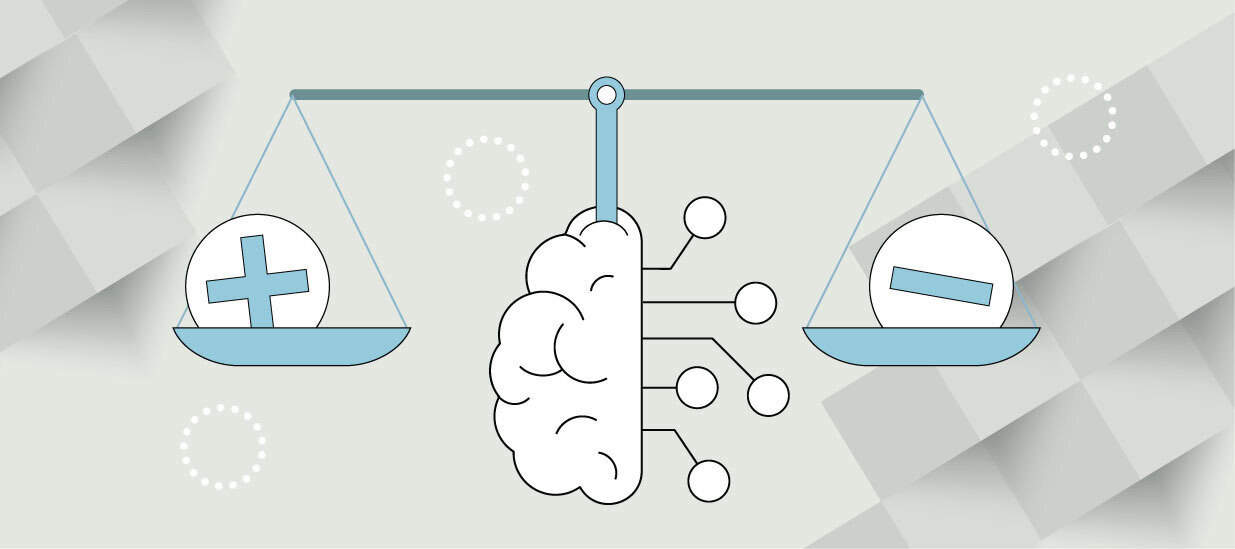8 minute read
In this article, you’ll learn how product management certifications can help product professionals develop their skills and build their careers.
For product professionals, earning a product manager certification can be a powerful step on the path of your career and professional development. To become a certified product manager, you need to complete relevant coursework from a credible organization with expertise in training product professionals. Then, you need to complete an exam that demonstrates your competency in relevant areas of product management, including business objectives and technical skills. After you’re certified, you’ll get to demonstrate your abilities and apply your knowledge to improve business outcomes in your current role, elevate into new roles, or even earn your first product management job.
Explore the factors to consider when choosing a product management certification and learn the steps required to complete it.
- What is a Certified Product Manager?
- Choosing Your Certification
- How to Become a Certified Product Manager
- Benefits of Getting a Product Management Certification
What is a Certified Product Manager?
Certified product managers are product professionals who have demonstrated mastery of key product management skills, such as market research and discovery, product planning, and product lifecycle management, through a recognized certification program.
Becoming a certified product manager confirms their ability to undertake those key responsibilities, manage complex projects to bring products from concept to creation, and align product strategy with business goals.
Key Skills for Certified Product Managers
Product managers need a few essential skills. Pursuing a certification can provide expert training and validation of those skills.
- Market Research, Data Analysis, and Insights: Product managers conduct market research, gather customer feedback, and analyze data to understand market needs. This research informs product strategy and ensures the product aligns with market demands.
- Product Strategy, Vision, and Roadmap Planning: They shape the product strategy and vision, identifying market opportunities and defining goals. Product managers create and manage the product roadmap, which outlines the strategic direction and prioritizes development efforts.
- Feature Prioritization and Product Development Oversight: Product managers decide which features to include, prioritizing them based on customer needs, market trends, and business goals. They oversee the entire product development process, ensuring progress and making necessary adjustments.
- Communication and Cross-Functional Leadership: They lead cross-functional teams, ensuring they align with the product’s goals. Product managers also communicate with stakeholders, manage resources and budgets, and ensure quality and legal standards compliance.
Product Management Certifications
Certifications validate that the product pro can bring products to life that meet real market needs. Product manager certifications often include educational coursework, case studies, and hands-on examples culminating in an examination or project. Certifications establish the professional’s credibility and expertise within the field, demonstrate a commitment to professional development and lifelong learning, and provide a competitive edge in the industry.
Types of Product Management Certifications
To become a certified product manager, you can take various paths. Product manager certifications may be offered online or in person. Online product management certifications can take place live or in asynchronous formats. They can also reflect a variety of specializations within product, such as product management, product marketing, or product leadership. These specializations often align with career paths and professional interests.
For example, professionals who are focused on product life cycle management and product strategy would be best suited to a Product Management Certification. On the other hand, professionals who are responsible for marketing and go-to-market strategies may benefit from Product Marketing Certifications.
Things to Consider When Choosing a Certification
Before enrolling, consider a few important factors to help you choose the best product management certification for your needs.
Format
First is the format. Many certifications are available online or in person. Some learners prefer the flexibility of online learning, while others appreciate the engagement of an in-person session. Choose the format that will help you achieve your learning goals. You may find live options (taught online in real-time) or asynchronous options (watching a recorded session) if you choose an online format. Again, your preference is personal, so choose the best option for your needs.
Specializations and Areas of Focus
Once you’ve chosen your format, you can explore available specializations within product. Product management professionals and career changers looking to expand into products may benefit from a Product Management Certification. Product marketers may pursue product marketing certifications, often focusing on launching and marketing products through their life cycle. Professionals who are advanced in their careers may opt for a certification path that is more comprehensive and covers aspects of products like leadership, financial forecasting, and stakeholder management.
Duration
Duration is another critical consideration. Depending on the format you choose and the level of detail your certification goes into, your certification may take anywhere from a few days to multiple weeks to complete. Spreading your coursework out over a few weeks or months may be helpful for product pros who are pursuing a certification in addition to their regular job duties.
Cost
Finally, cost is an important consideration. Product management certifications can range from a few hundred dollars to multiple thousands, depending on the format, quality, and duration of the coursework. If cost is an issue, consider asking your employer to sponsor your training to defray the cost to you. Or, ask if the organization issuing your certification has flexible payment options.
How to Become a Certified Product Manager
Once you’ve found a product management certification that fits your needs, you need to complete a few important steps to get certified.
Step 1: Get approved for employer support
For many working professionals, completing a product management certification coincides with their existing work and responsibilities. For this reason, it may make sense for you to share your desire to pursue a certification with your employer. Identify stakeholders who can help you along your product management certification journey, such as your manager, human resources, or leadership and development.
If your employer offers financial assistance for training and professional development, ask them to sponsor your certification. Share with them the certification you want to pursue, how it aligns with your professional goals, and how the skills you’ll gain will benefit the company. Communicate the approximate time you will need to complete the certification. If you need to take time off from your standard work schedule to complete your certification, communicate that directly. Be sure to share the costs associated with the certification.
Step 2: Register for your certification
Confirm that the certification you’ve selected fits your professional goals, availability, and learning needs. Complete your registration and select a payment plan that works for you.
Step 3: Complete courses and coursework
Once you’ve registered for your certification, it’s time to complete your courses. Be sure to select the best courses for your career goals (such as Foundations if you are new to product management or Launch for seasoned product professionals). Additionally, certifications should include course content that builds your skills incrementally.
For example, Pragmatic Institute’s Product Management Certification offers Foundations as an essential starting point for novice product managers and seasoned professionals alike. Then, learners complete Focus (for strategic product planning) and complete their certification with Build (developing a successful product).
Whether your courses are live or asynchronous, or you are completing your coursework live or online, actively participate in the courses. Take your own notes and complete all supplemental materials and applied learning activities. If you are in a live course, find opportunities to ask questions and discuss topics with your instructor or peers.
Step 4: Pass your certification exam
Your product management certification course may require successful completion of an evaluation exam. Passing your exam is essential to becoming a certified product manager because it objectively assesses your knowledge and skills. Once you complete your certification, share your accomplishments with your employer and professional network.
Step 5: Apply your knowledge
Once you return to your daily work, make an effort to apply what you learn to real-world scenarios. In the weeks following your certification, return to your notes. If you can access a community of other product professionals (such as the Pragmatic Alumni Community), leverage that as a resource to hear your peers’ expert perspectives and utilize any tools or templates you received as part of your training.
Benefits of Getting Your Product Management Certification
There are a number of benefits to getting your product management certification, ranging from skill development to professional growth and advancement.
Improved Skills
Professional product management training can help you develop the critical skills needed to succeed. Through certification, you’ll get expert training and access to templates and resources to help you with market research and discovery, product roadmapping, feature prioritization, product launch planning, and much more. Certification can also help you develop transferable skills such as communication, project management, and stakeholder management to support your product development, launch, and lifecycle management to be as effective as possible.
Career Development
Earning your product management certification demonstrates your commitment to growing your knowledge with the latest industry news and best practices for product professionals. It also helps you hone your skills to be a more effective product manager. These skill improvements and the credentials you receive are evidence you can use to validate your knowledge and commitment to your career during the job search and promotion processes.
Salary Benefits
According to Glassdoor, in 2024, the median salary for Product Managers in the United States was $196,000. However, salary can vary depending on industry, geographic location, and qualifications. A product management certification can help qualified candidates progress into more advanced, higher-paying certified product manager roles.
Whether you’re an experienced industry professional or just beginning your forays into product, becoming a certified product manager can help you advance your skills and accomplish career goals.
Author
-

The Pragmatic Editorial Team comprises a diverse team of writers, researchers, and subject matter experts. We are trained to share Pragmatic Institute’s insights and useful information to guide product, data, and design professionals on their career development journeys. Pragmatic Institute is the global leader in Product, Data, and Design training and certification programs for working professionals. Since 1993, we’ve issued over 250,000 product management and product marketing certifications to professionals at companies around the globe. For questions or inquiries, please contact [email protected].
View all posts








